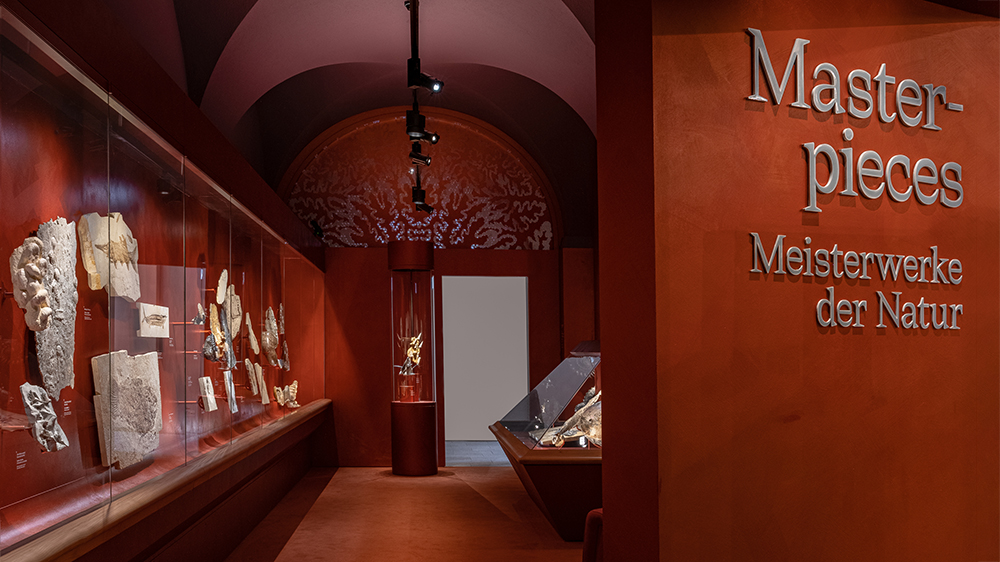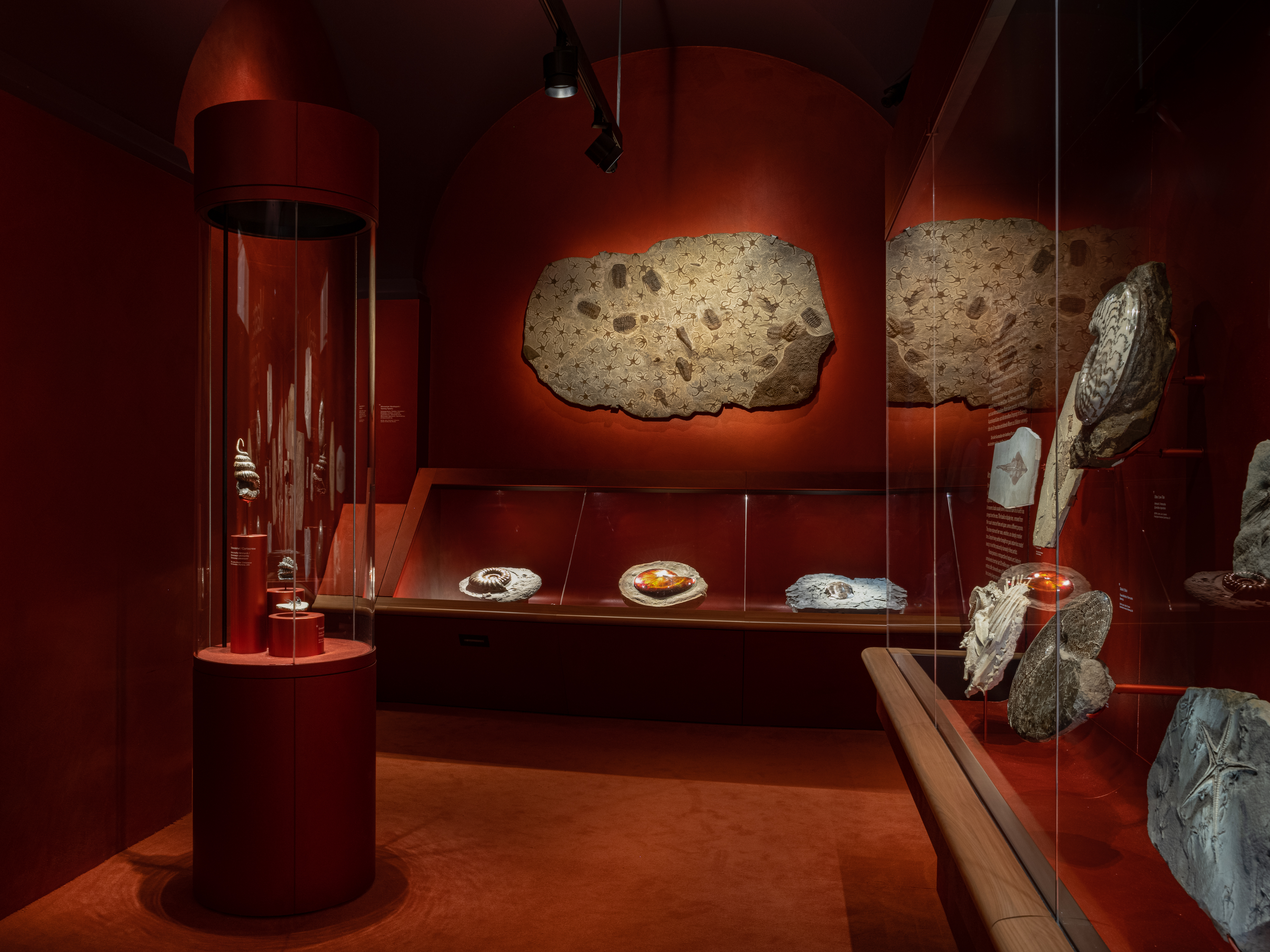Navigation auf uzh.ch
Navigation auf uzh.ch

Walls of burnished red, a sumptuous carpet underfoot, the glass display cabinets glinting in the muted light: A fittingly opulent setting for the Zoological and Paleontological Museum’s latest precious trove of objects. The exhibits form a very special kind of retrospective: On display are 50 particularly impressive fossils – masterpieces created by the great artist Mother Nature in her subterranean workshop sometime in the last 550 million years.
The room displaying these natural masterpieces is tucked away at the rear of the museum’s ground floor, with a design that clearly distinguishes it from the other parts of the museum. The cloistered space allows visitors to immerse themselves in the ancient aesthetic of the fossil art. Some of the prehistoric relics resemble bronze or marble sculptures, while others could be mosaics, frescoes or calligraphic ink drawings painted on stone. In the words of Plato: “The greatest and most beautiful things are the work of nature and chance.”
Unlike traditional paleontological exhibitions, the exhibits are not assorted by age or type, but are presented as works of art which inspire the kinds of fantasy and aesthetic enjoyment that one would usually expect to find in an art gallery.
“Fossils exert a special kind of fascination for us humans,” says exhibition curator Dennis Hansen, who led the design and implementation of the new display space. “These astonishing forms were all once living organisms. Their transformation came about thanks to the chance combination of unusual conditions. As tangible remnants of a long-forgotten era, they force us to reflect on our own modest place in this world.”
Although it is rare these days for scientific institutions to emphasize the aesthetic attributes of fossils, the approach is not new. In the 16th and 17th century, collectors exhibited fine paintings, elaborate ironwork and ethnographic artifacts alongside exotic plants, stuffed animals, crystals, gemstones and unusual rocks. The first museum in Zurich did the same: The art gallery of the civic library in the Wasserkirche.
The Zoological and Paleontological Museum has paleontologist and collector Hans-Jakob Siber to thank for its new treasures. As well as collecting extremely rare specimens of great scientific value, he also gathered this extraordinary cache of fossils. After being on display for many years at the Aathal Dinosaur Museum, they are now on long-term loan to the Zoological and Paleontological Museum, where they will form part of the permanent collection. “The opening of the new ‘Schatzkammer’ is the first of many new projects planned for the exhibition spaces in the next few years that aim to bring the Paleontological Museum and the Zoological Museum closer together,” says museum director Isabel Klusman.
